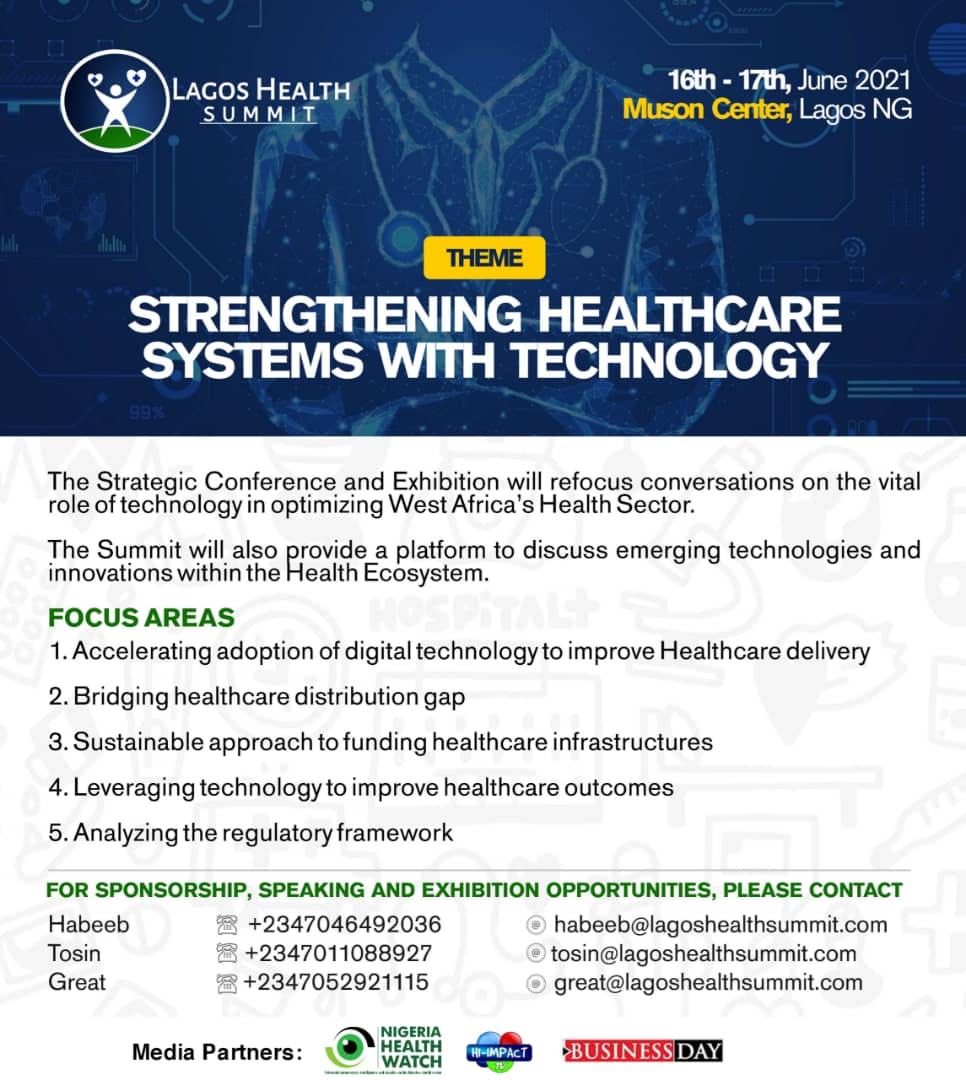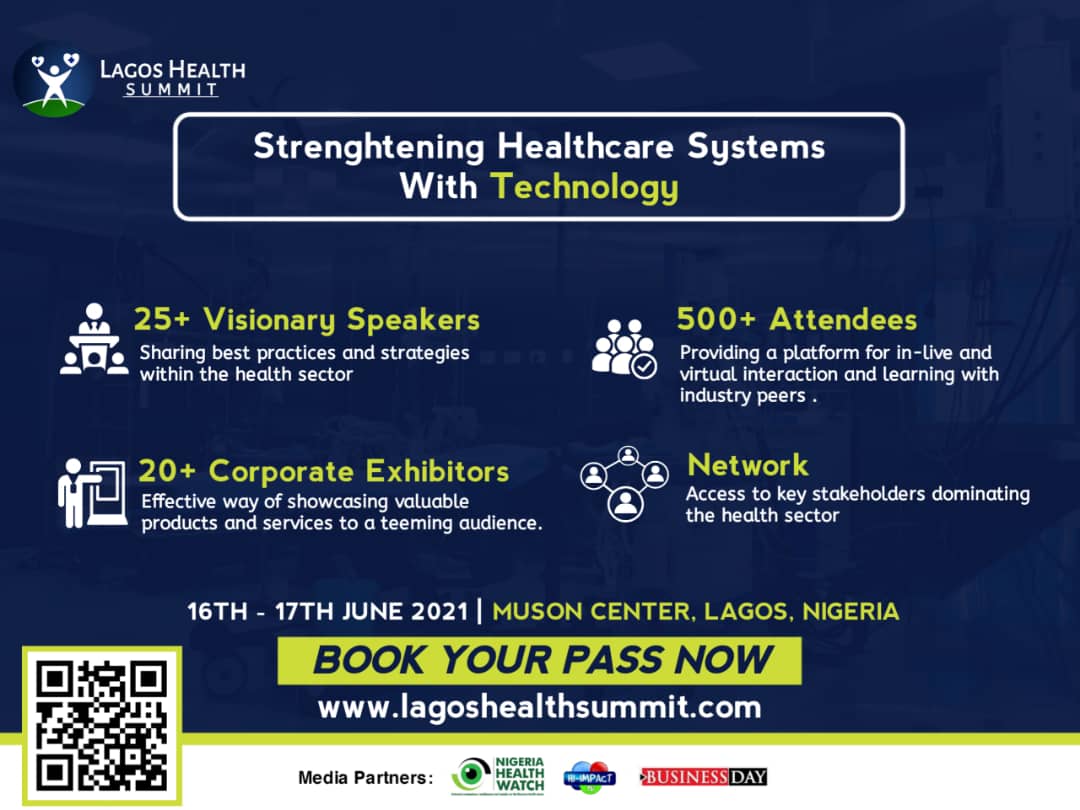By Tosin Akinola (Guest Writer)
Technology was pivotal in ensuring that healthcare services could continue to operate even as the COVID-19 pandemic raged. Countries like South Korea leveraged on technology to support their response to the COVID-19 pandemic. They used different tools for aggressive contact tracings, such as security camera footage, facial recognition technology, bank card records, and global positioning system (GPS) data from vehicles and mobile phones to provide real-time data and detailed timelines of people’s travel.
In Nigeria, hospitals and health systems launched and expanded telehealth innovations in a matter of weeks to contain the high demand for medical care. One of such innovations was the Triage Tool which asks a series of epidemiological questions to assess the users’ risk of having contracted COVID-19. “When the pandemic got to Nigeria, we realised that the NCDC and the Ministry of Health would have a problem sieving through the calls that they had to receive. We wanted to create something that would reduce pressure on the NCDC hotlines, so we created the COVID-19 Triage Tool,” Wale Adeosun, CEO of Wellvis, a Lagos-based telemedicine startup explained in an interview with Techpoint Africa.
Truly, the COVID-19 outbreak challenged many healthcare systems across the world, with Nigeria being no exception. The approach of traditional healthcare systems to the pandemic revealed inherent flaws, such as the failure to detect the spread of the virus early on, public hospitals being overwhelmed, a dire shortage of personal protective equipment, and exhaustion of healthcare workers.
However, Health-Tech startups are working to bridge the huge demand-supply gap. The pandemic challenged start-ups to develop solutions that could disseminate useful information, help the government monitor infection trends, produce essential medical supplies, and support contact tracing. “Almost everything we’re doing right now, from logistics to managing the outbreak itself, is being migrated into different technological platforms,” Dr. Chikwe Ihekweazu, Director General of the Nigeria Centre for Disease Control (NCDC), said.
Startups witnessed a significant surge in demand for their products and services. “We have noticed a significant increase in the number of people using our ‘chat with a doctor’ feature,” says Dr. Femi Kuti, Director of Reliance HMO, a health insurance platform with a telemedicine feature in an interview with Techpoint Africa.
According to Techpoint Africa’s Nigerian Startup Funding Report 2020, Nigerian health-tech startups witnessed increased funding activity, coming second only to fintech in terms of funding size and the number of deals made in 2020. It is evident that the pandemic accelerated growth in the health-tech industry, providing room for opportunities and innovations. The question is, how can this be sustained in the ‘new normal’?

The Lagos Health Summit, now in its second edition, is a gathering of key public and private stakeholders in the health sector with a focus on addressing and providing solutions to key developmental issues facing the sector. The hybrid event which takes place on June 16–17, 2021 at The Muson Center in Lagos, will bring together top health policymakers, industry leaders, and experts to a single forum to share digital innovations that can be integrated with the current Nigerian healthcare infrastructure in a bid to optimize and strengthen it.
The previous edition of the summit convened over 200 delegates and explored conversations on the importance of health insurance in providing access to quality and reliable healthcare services. It will also feature organisations like MomCare finding technology solutions to challenges we face in maternal healthcare.
This year’s summit will revolve around the theme “Strengthening Healthcare Systems With Technology”. At the event, health-tech start-ups, innovators, and experts from the industry will discuss the potential of both core and digital health technology and how it is set to reshape the healthcare landscape.
The two-day summit will host C-suite directors and key decision makers cutting across healthcare service providers, federal and state government ministries, departments and agencies (MDAs), and health-tech firms, amongst others. “Notable mentions including Total Health Trust (THT), Aellacredit, Evercare Hospital Lekki have committed to showcasing their most innovating services and products at our event and we anticipate participation from more organizations,” Habeeb Moshood, Executive Director, Lagos Health Summit, said. He noted that attendees should expect to meet diverse exhibitors from nimble startup companies to tech behemoths.
Registration for the event gives access to all major stage schedules, one-on-one networking, both physical and virtual sponsor exhibition booths, and all post-event recordings. Digital audiences can also connect with exhibitors, keynotes, and panel sessions.
To register for the Lagos Health Summit, visit the Summit website.


